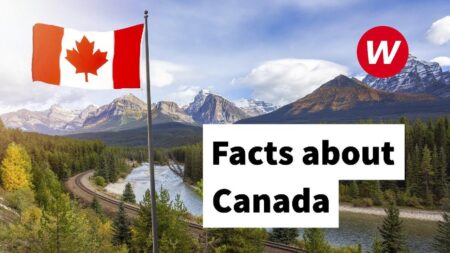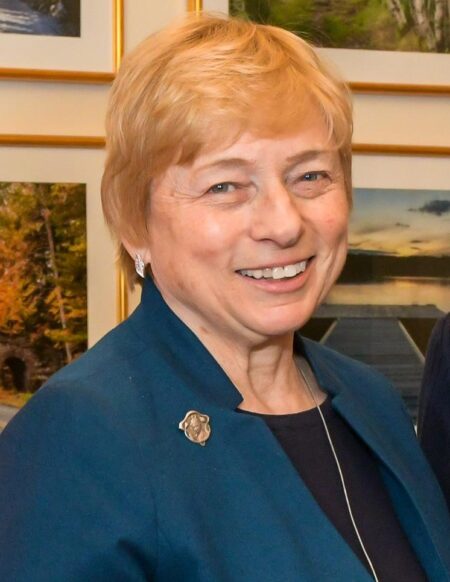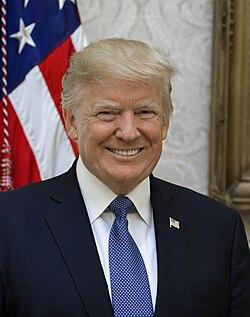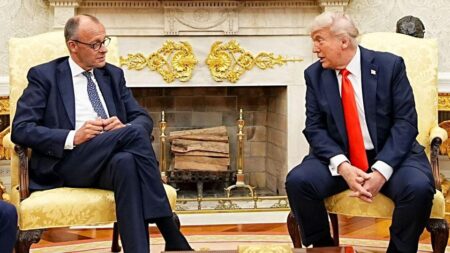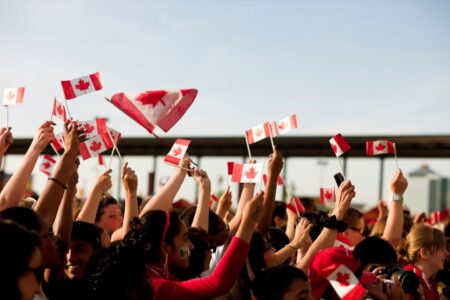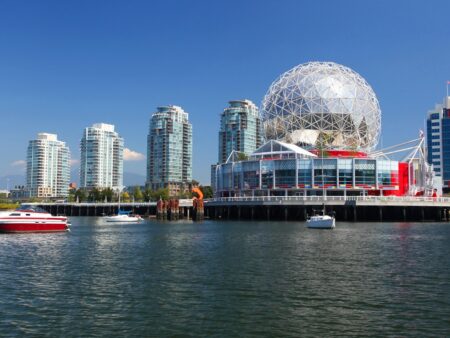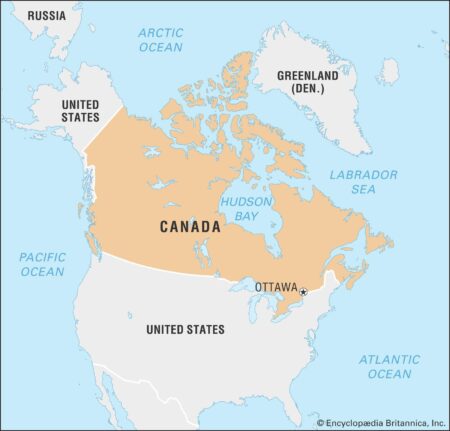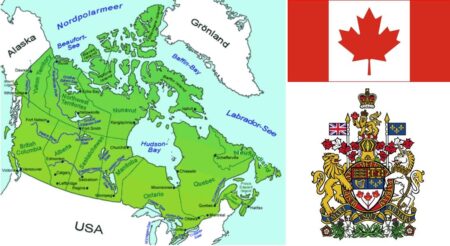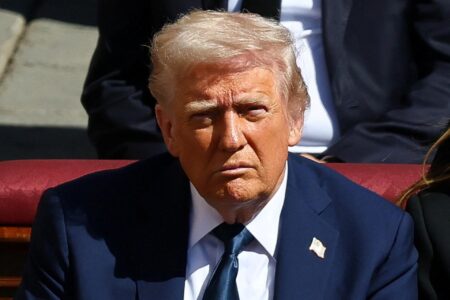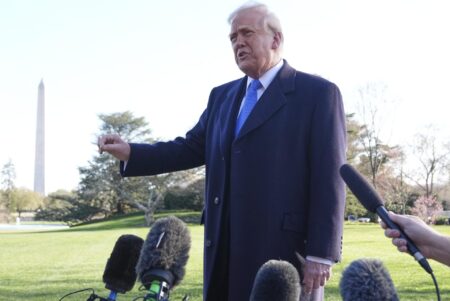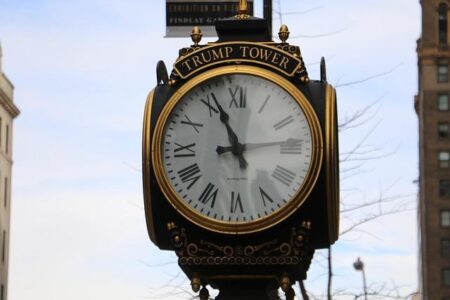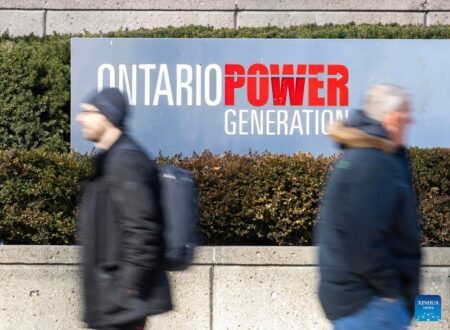Canada has officially rolled back its digital services tax aimed at US tech giants, marking a bold move to ease mounting trade tensions. Former President Trump fiercely opposed the tax, claiming it unfairly singled out American companies
Browsing: US-Canada relations
Gov. Janet Mills presses forward with her Canada tour this Wednesday, strengthening cross-border ties and fueling economic momentum. Her visit highlights vibrant partnerships in trade, environmental efforts, and regional security
Former President Trump and Canadian Minister Carney have kicked off a high-stakes, 30-day sprint to finalize a groundbreaking US-Canada trade agreement, aiming to strengthen economic ties and swiftly resolve long-standing trade disputes, Politico reports
Donald Trump, freshly convicted of a felony, now faces potential entry bans to Canada right before the G7 summit. Officials are weighing the complex legal and diplomatic consequences of barring a former U.S. president from crossing the border
A recent Guardian report reveals a growing wave of Canadians harboring negative feelings toward the US, fueled by concerns over trade policies and fears about threats to national sovereignty. These mounting tensions are straining the bond between the two countries
Canada is gearing up to fast-track crucial nation-building projects in response to recent U.S. policies under former President Trump, aiming to strengthen economic independence and ignite regional growth, government officials reveal
In a spirited rebuttal to former President Trump’s playful notion that Canada might thrive as the 51st US state, former Bank of Canada governor Mark Carney emphatically stated, “Canada is not for sale, ever.” Carney’s bold declaration highlights the unwavering sovereignty of the nation in the face of shifting geopolitical conversations
Kentucky’s bourbon industry is navigating a turbulent landscape as rising trade tensions between the U.S. and Canada cast a shadow over export markets. With potential tariff hikes on the horizon, local distilleries are bracing for challenges that could shake their sales and disrupt the thriving cross-border trade they depend on.
As trade tensions reach a boiling point, Trump’s trade war with Canada is sending shockwaves through the U.S. economy, sparking unexpected repercussions. With the stakes higher than ever, anticipation builds for the upcoming meeting between Trump and former Bank of England Governor Mark Carney.
A recent Al Jazeera article challenges the notion of Canada’s united front against Donald Trump, revealing a complex tapestry of political and societal divides within the nation. The article uncovers a spectrum of opinions that showcase both fervent support and vocal dissent among Canadians when it comes to U.S. policies.
Former President Donald Trump has taken a moment to clarify his intriguing comments about the possibility of Canada joining the United States as the 51st state, insisting, “I’m really not trolling.” His provocative statements have ignited lively discussions and prompted many to ponder the implications for U.S.-Canada relations in today’s charged political climate.
In his latest remarks, Andrew Phillips emphasizes that Donald Trump’s ongoing criticism of Canada is a vital reminder of the complexities in U.S.-Canada relations. As tensions rise, this dialogue could serve as a much-needed wake-up call for both nations to reassess and refine their strategies moving forward
Pete Hoekstra has been officially confirmed as the United States ambassador to Canada. His appointment comes amid efforts to strengthen bilateral relations between the two nations. Hoekstra aims to enhance collaboration on key issues such as trade and security.
As tensions escalate in the trade war, Canadian snowbirds are rethinking their annual pilgrimage to Florida. Many are selling properties and canceling planned trips, citing economic uncertainty and rising costs as key factors in their decisions.
A group of scholars specializing in fascism and critics of former President Trump have decided to relocate from Yale University to Canada. This move reflects growing concerns over academic freedom and the political climate in the U.S., sparking discussions on the impact of such transitions on higher education.
Donald Trump’s recent actions and rhetoric may be inadvertently bolstering liberal sentiments in Canada. His controversial policies and divisive statements are energizing progressive movements, creating a rallying point for Canadian liberals as they seek to differentiate their values from his administration.
In “Opinion | Trump’s bullying is turning Canada from friend to foe,” The Washington Post explores how aggressive rhetoric and policies from the Trump administration have strained U.S.-Canada relations, shifting perceptions of allyship into conflict.
In the 1930s, a bold movement sought to merge the US, Canada, and Greenland, envisioning a unified North America. This initiative highlights historical aspirations for regional cooperation, echoing modern discussions on trade, environmental challenges, and cultural ties.
If Canada and Greenland were to become U.S. states, the electoral landscape would shift dramatically. With their combined populations, they could tilt votes in Congress, influence presidential elections, and reshape policies on immigration, healthcare, and climate change.
Ontario has announced a 25% tax increase on electricity exports to the U.S., a strategic move in response to escalating trade tensions fueled by Trump’s trade policies. This decision aims to protect local consumers and stabilize the province’s energy market.

